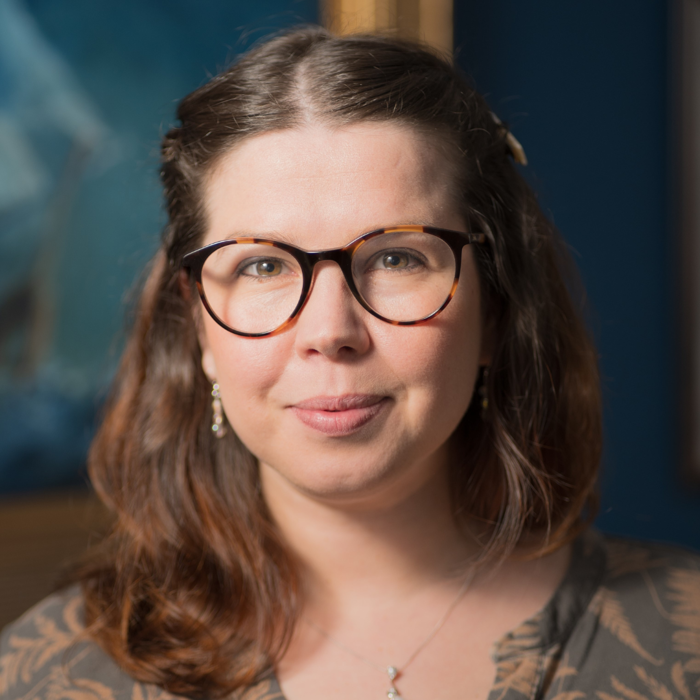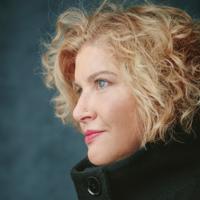Neuroscience-based Vocal Pedagogy
Thursday 22nd April 2021, 5:00 PM - 7:00 PM (London Time)
Neuroscience-based vocal pedagogy
Heidi Moss Erickson, B.A.Bio, B.Mus.Voice, M.Sci.
Research on the neurobiological underpinnings of vocalization is growing at a rapid pace. Scientists from varied disciplines contribute to this field, elucidating the process from diverse angles such as evolutionary biology, molecular biology, genetics, neuroscience, and social science. It is essential that singers, pedagogues, and voice scientists capitalize on this wealth of data outside of our own field to greater understand our instruments.
An integrative viewpoint of how and why we sing can refine the art of vocal pedagogy, demystifying long-held myths, and yield greater vocal efficiency: making singers better faster.
The goal of this lecture is to bridge the divide between traditional voice science and pedagogy with the most current research from other disciplines.
Specifically, we will explore:
- Vocal Learning: audiation and mimicry
- How to learn coloratura and riffs via patterns
- The importance of getting off the page and strategies to make written music more ‘singer-brain’ friendly.
- Using gesture to improve vocalization (and why it works!)
- Pitching strategies
- Reframing breath: a valve based system
- Character and emotion: playing with opposites
- Distraction as a tool
Vocal pedagogy should be a dynamic process, and the hope is that this exploration will encourage singers and teachers to think outside the box. Given the rapid pace of neuroscience research, dogmas can actually change in a short amount of time resulting in paradigm shifts that can be small or seismic. To that end, it is important to keep up to date on current trends via primary papers and taking note of the diverse minds in the field. We will finish the lecture with a bibliography of the wonderful scientists working on the neuroscience of vocalization.
Heidi Moss Erickson
Heidi Moss, is a Bay Area performer, educator, and scientist. Noted for her “rich and radiant soprano” (Edward Oriz, Sacramento Bee) has performed on national and international stages...
Sorry, this is an archived short course...
We have plenty of upcoming short courses coming soon. See details of some of them below or look at the full list of short courses.

Monday 7th July 2025
2:00 PM - 4:00 PM
Tuesday 8th July 2025
2:00 PM - 4:00 PM
Wednesday 9th July 2025
2:00 PM - 4:00 PM
Friday 11th July 2025
2:00 PM - 4:00 PM
Monday 14th July 2025
2:00 PM - 4:00 PM
Tuesday 15th July 2025
2:00 PM - 4:00 PM
Wednesday 16th July 2025
2:00 PM - 4:00 PM
Friday 18th July 2025
2:00 PM - 4:00 PM
(London Time)
Introduction to statistics and working with quantitative data for Voice Professionals: 8-Session Online Bootcamp

Dr David Cane
This certificated statistics course is ideal for individuals interested in laying a solid foundation in quantitative research methods. By focusing on essential statistical principles, you will be equipped with the tools to understand and apply quantitative research techniques effectively. Statistics is a crucial component of quantitative research; mastering it will enable you to grasp quantitative methods more confidently and precisely.


Tuesday 15th July 2025
5:00 PM - 7:00 PM
(London Time)
Exploring the roots of the tongue: Ideas for performance

Walt Fritz
As a relative outsider looking into the voice and performance world, I witness the bell curve of thoughts and actions on how the tongue contributes to voice problems and how best to tame that tension. Traditional ways of taming tongue tension seem adequate (or would seem so, based on feedback), so what is different and new? In this short course for the Voice Study Centre, Walt Fritz will introduce the learner to variations on self-applied tongue stretches and exercises.


Wednesday 16th July 2025
2:00 PM - 4:00 PM
(London Time)
Emotion and Performing Accents and Dialects: why does Emotion Get in the Way?

Louisa Morgan
At points of heightened emotion, it is common for actors working in an accent to default to their natural speech. How do we help performers to avoid this issue and provide them and their directors with the confidence they need regardless of the emotional demands of the piece? What can we learn from research in vocal expression of emotion to help actors to embody the emotion and keep control of their voice and accent? Our very own Louisa Morgan will guide participants through the latest research and offer practical suggestions for working with performers needing to navigate this challenge.
